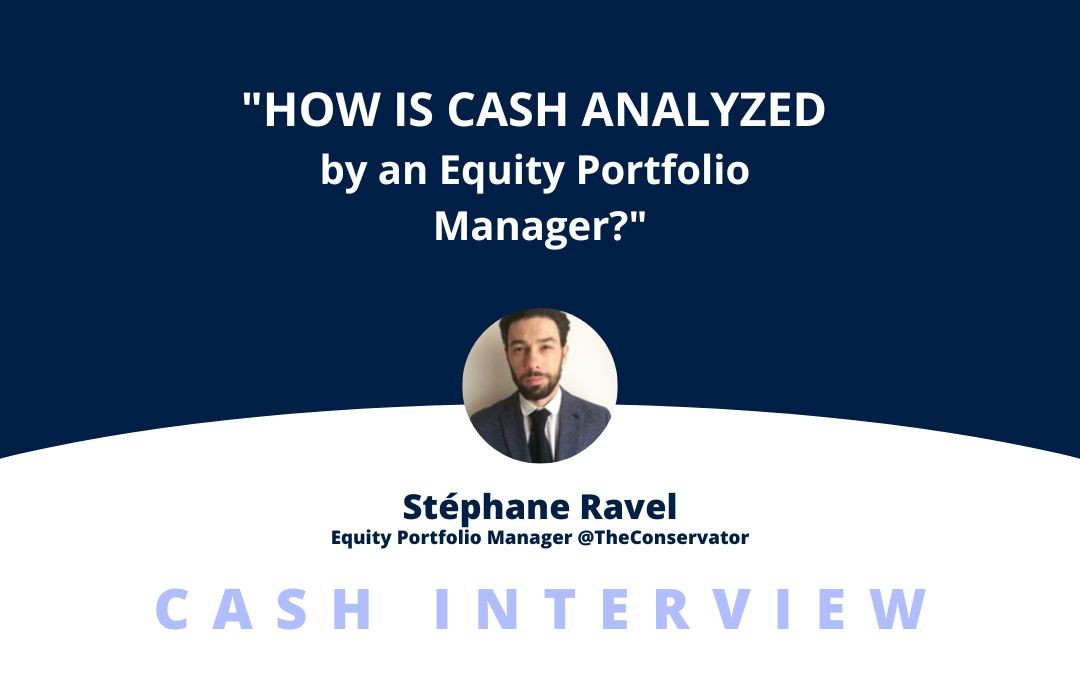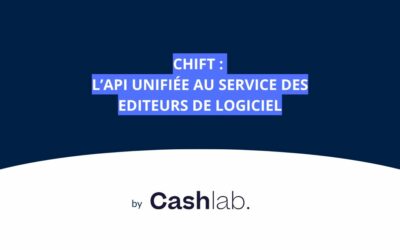Stéphane Ravel, asset manager specialized in equity management at Le Conservateur, explained for Cashlab the notion of cash in asset management.Asset Management.
Can you tell us about CASH in Asset Management?
" For investors, the notion of CASH is fundamental. Indeed, the CASH is the basis of the main method of valuation of an asset, a fortiori a company. This method is the DCF, Discounted Cash Flow, with which the sum of future cash flows is discounted today. This is how we get a valuation of the company.
This method is more absolute than the MULTIPLE method (Price/Earnings Ratioused in relative terms. It compares one company to another, one sector to another.
Note that managers are increasingly relying on a CASH equivalent of this ratio, the FCF YIELD. It represents the return of a stock in relation to the FCF generated over the desired year. This last method therefore allows for relative performance while keeping CASH at the center of the valuation."
Have there been any recent developments that have accelerated this shift to a CASH CULTURE?
"In my opinion, the growing share of PRIVATE EQUITY funds in the M&A of listed companies has been a gas pedal for the profession. The principle of these funds is to leverage the target as much as possible. That is to say, to use the cash generated to meet the debt repayment exclusively (no need to pay shareholders).
Finally, the objective is to transform the initial debt into EQUITY over their investment period. Thus, even without increasing the acquisition multiple (non-CASH multiple, essentially Enterprise Value/EBITDA), the value creation for the fund is enormous once the company is sold.
This requires very detailed monitoring and very effective CASH tracking tools. This is particularly important in order to be able to meet repayment obligations, regardless of the operational situation of the acquired company. This culture has gradually become imposed among all asset managers.."
In your daily life, do you also do this follow-up?
"Of course! Managers now use many operational indicators related to CASH. They are the key to our forecasts. Even if in the listed universe, debt repayment is not the only objective, the interests are aligned. The improvement of the operating FCF gives the company the opportunity to finance its investments (CAPEX) to ensure:
- organic growth in sales
- acquisitions to ensure external growth in sales (a way to accelerate growth)
- the repayment of the debt (case of PRIVATE EQUITY)
- or shareholder remuneration (via a dividend or share buyback plans, the latter being an Anglo-Saxon culture)
Consequently, all the components of the operating cash flow are analyzed by the managers."
Companies too?
"Yes, that's exactly what has evolved recently. These KPIs are given 2 to 4 times a year by listed companies, during their quarterly or half-yearly publications, or even both. We talk about Cash Conversion, Organic Free Cash Flow... But now, the focus is on the components of these KPIs, and not only on the investments (the CAPEX).
Investors want to understand and anticipate the need for working capital and especially its evolution. Here again, KPIs such as the need in days of turnover, the stock in turnover... Upstream, the company must therefore be equipped to ensure this monitoring, make forecasts, and give perspectives (guidelines) to investors and respect them!
The manager must therefore ensure that the company invests in decision support, because here again the interests align!"
Closely monitor your cash flow in a clear and optimised manner with our Cashlab tool.
Exclusive interview with Jennifer Serfati, Founder of consultancy Hart Group
Jennifer Serfati tells us about the origins, missions and challenges of her consultancy Hart Group. ‘Our motto, ‘The partner for balancing your cash flow’, illustrates our commitment to supporting our customers with a 360° vision’.
CASHLAB x CHIFT
Chift is the fruit of the experience of its three founders in companies specialising in systems integration. After visiting around a hundred companies and analysing the problem, they identified a major gap in the integration market. That's how they came up with Chift, a unified API.
Electronic invoicing reform: what is it all about?
Electronic invoicing is the fully digital management of the invoice lifecycle, from creation to archiving.
![]()
📍1, rue des Prouvaires
75001 Paris
Follow us:
©2023 All rights reserved. | Cashlab | Legal Notice




